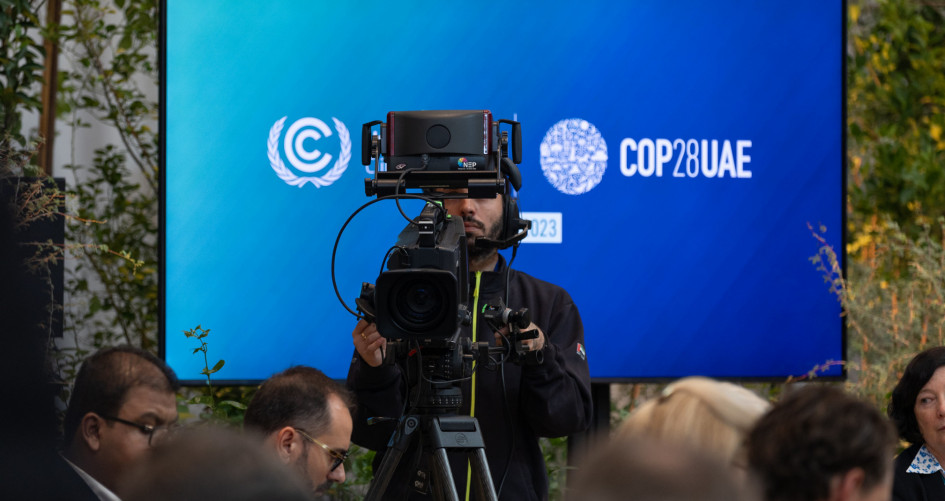
1. A Call to Get Serious: Climate Conference COP28 Dubai
The COP28 United Nations Climate Change Conference, being held in Dubai marks a critical juncture in the fight against the escalating climate crisis. Occurring during the hottest recorded year, the conference (November 30 to December 12, 2023) underscores the urgency of enhanced climate action. The conference concludes the first global stocktake since the 2015 Paris Agreement, revealing a stark reality: current efforts fall short of the goal to limit temperature rise to 1.5°C this century.
Current plans only achieve a 2% reduction in greenhouse gas emissions by 2030, against the required 43%. COP28 President Dr. Sultan Al Jaber emphasizes the need for immediate, effective action. The conference focuses on accelerated emissions reduction, resilience building, and critical climate finance, including replenishing the Green Climate Fund and operationalizing loss and damage funds.
Thank you for your generous gift that will help us continue the production of this weekly, free publication

2. COP28: UAE Planned to Use Climate Talks to Make Oil Deals
COP28 is the UN’s latest round of global climate talks. It is being hosted by the UAE in Dubai and will be attended by 167 world leaders, including the Pope and King Charles III. The United Arab Emirates planned to use its role as the host as an opportunity to strike oil and gas deals, the BBC has learned. The UN body responsible for the COP28 summit told the BBC, hosts were expected to act without bias or self-interest.
The documents, obtained by independent journalists, were prepared by the UAE’s COP28 team for meetings with at least 27 foreign governments ahead of the COP28 summit, which starts on 30 November. The hope is that COP28 will help limit the long-term global temperature rise to 1.5C, which the UN’s climate science body says is crucial to avoid the worst impacts of climate change.

3. Major Oil Producer UAE Hosts COP28 Climate Talks in Dubai
One area of debate is expected to be around ending the use of fossil fuels, with host country the United Arab Emirates (UAE) a major oil and gas-producing country. There has been criticism that UAE minister Sultan Al Jaber, who is presiding over the talks, is also the chief of the country’s national oil company. Campaigners have warned there can be no more “snake oil solutions” over tackling climate change ahead of the UN COP28 summit, which is expected to see intense debate over the phasing out of fossil fuels.
World leaders, senior ministers, and officials from 198 countries will gather in Dubai this Thursday for the annual summit on the climate crisis, which is expected to be the biggest yet. Those expected to attend include UK Prime Minister Rishi Sunak and Scotland’s First Minister Humza Yousaf, while King Charles will give the opening speech.
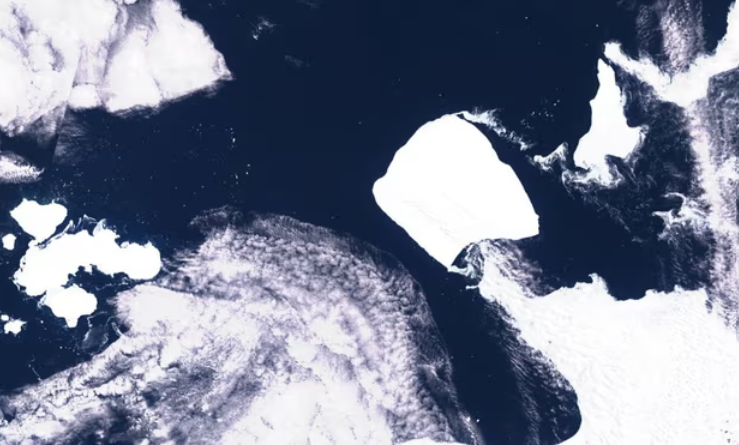
4. World’s Biggest Iceberg Moving Beyond Antarctic Waters
One of the world’s largest icebergs is drifting beyond Antarctic waters, after being grounded for more than three decades, according to the British Antarctic Survey. The iceberg, known as A23a, split from the Antarctic’s Filchner Ice Shelf in 1986. But it became stuck to the ocean floor and remained for many years in the Weddell Sea. Recent satellite images reveal that the iceberg, weighing nearly a trillion metric tonnes, is now drifting quickly past the northern tip of the Antarctic Peninsula, aided by strong winds and currents.
The iceberg is about three times the size of New York City and more than twice the size of Greater London, measuring about 4,000 sq km (1,500 square miles). The colossal iceberg will probably be launched into the Antarctic Circumpolar Current. This will funnel it toward the Southern Ocean on a path known as “iceberg alley”.
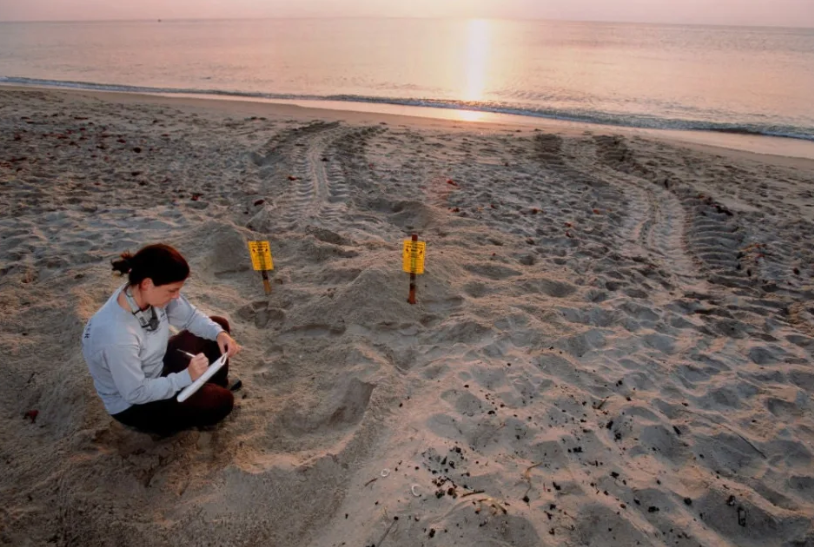
5. Florida Marine Center Reports Breaking Sea Turtle Nesting Record
The 2023 sea turtle nesting season in Florida broke records, but marine experts warn there is more to the numbers than meets the eye. The Loggerhead Marinelife Center reported a record-breaking 25,025 sea turtle nests in 2023. Many of the nests were from loggerheads, but the leatherbacks and green turtles also had a significant year. The Florida Fish and Wildlife Conservation Commission reported a preliminary count of over 134,000 loggerhead nests, 76,645 green turtle nests, and 1,711 leatherback nests.
“This milestone achievement for sea turtle conservation is attributed to various conservation efforts, including changes to fishing regulations in the late 1980s in addition to standardized monitoring and protection efforts of nesting females and hatchlings on nesting beaches. Five species of sea turtles call Florida’s waters home: leatherback, loggerhead, green turtle, hawksbill, and Kemp’s ridley.
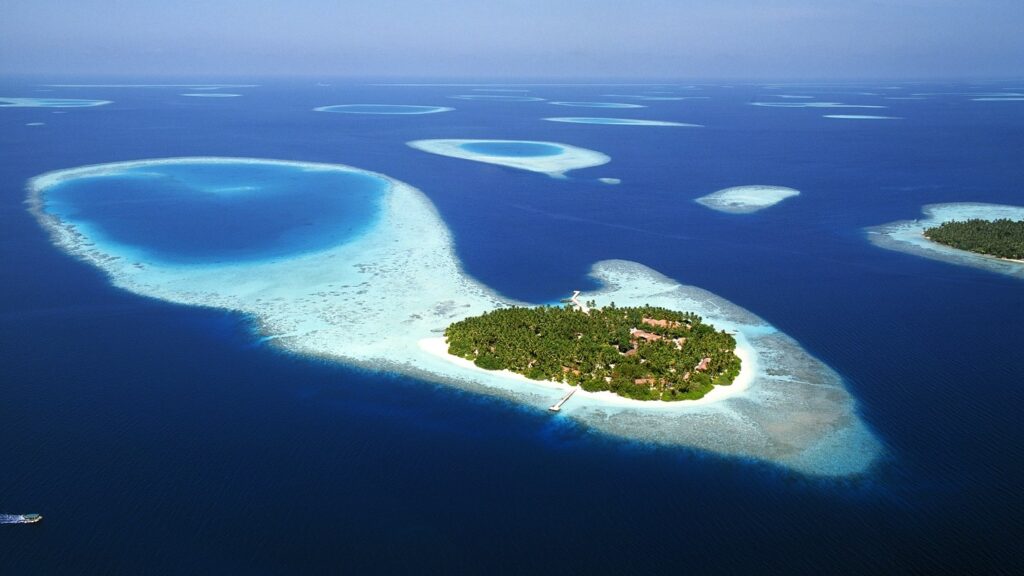
6. Maldives’ Tug of War Between Land Development and Environmental Conservation
Rising sea levels threaten to swamp the Maldives and the Indian Ocean archipelago is already out of drinking water. But Maldives’ new president Mohamed Muizzu says he has scrapped plans to relocate citizens. Instead, he promises the low-lying nation will beat back the waves through ambitious land reclamation and building islands higher — policies, however, that environmental and rights groups warn could even exacerbate flooding risks. We look at the ambitious hopes of the Maldives administration and concerns raised by its inhabitants.
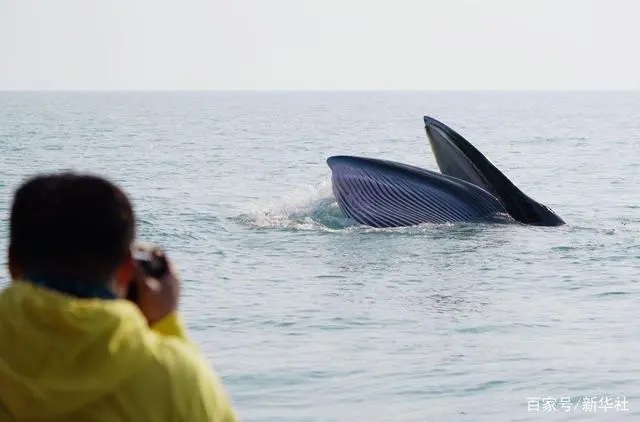
7. Weizhou Island Waters a Habitat for Rare Whales
Chen Mo spends one-third of each year on China’s youngest volcanic island, Weizhou Island, and has accumulated over 6 terabytes of photos/video footage of the rare Bryde’s whales that swim off its coastline. “We identified about 10 members of the herd from 2016 to 2018. There are nearly 50 Bryde’s whales now, and the herd size is still increasing,” His team has observed the mating behaviors of adult whales and mother whales hunting with their calves.
The researchers believe that the island and its surrounding waters are one of the major hunting and breeding grounds for the species. Weizhou Island sits in the Beibu Gulf, home to a spate of endangered marine wildlife in southern China. Over 1,000 kilometers away lies the Gulf of Thailand, which boasts a well-preserved marine ecosystem and rich food resources and is another essential habitat of the whales.
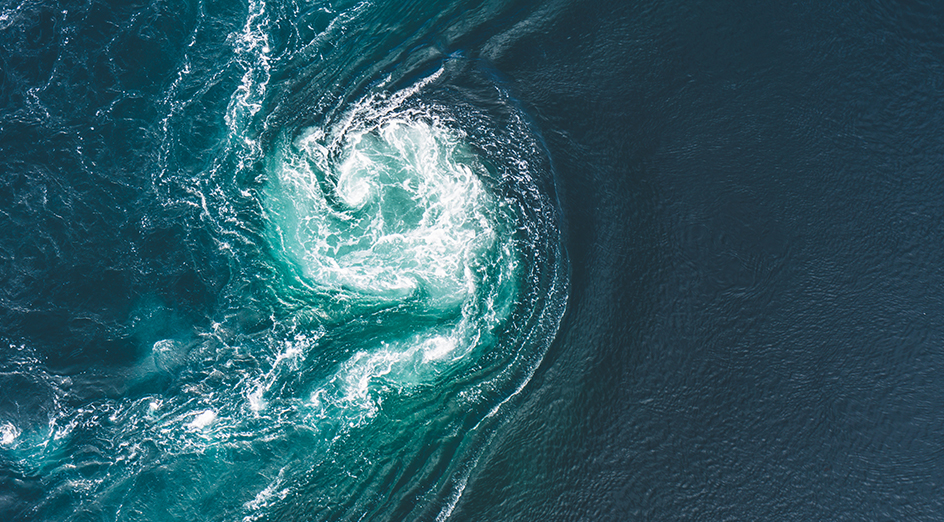
8. Science Collaboration to Unlock the Secrets of Ocean Currents off Australia’s North-West Shel
A research collaboration between The University of Western Australia and the Australian Institute of Marine Science (AIMS) would make it possible to predict strong currents off the north-west coast, with future applications for industry, search and rescue, and conservation. Currently, there is little information about swirling eddies, underwater waves and how the ocean responds to tropical cyclones in the region – dynamic ocean processes that cause operational problems for offshore industries.
Researchers from UWA and AIMS, who are partners in the ARC Research Hub for Transforming Energy Infrastructure through Digital Engineering (TIDE), have recently taken steps to rectify these knowledge gaps by deploying sophisticated sensors and taking seawater samples in the Browse Basin, north-west of Broome in Western Australia
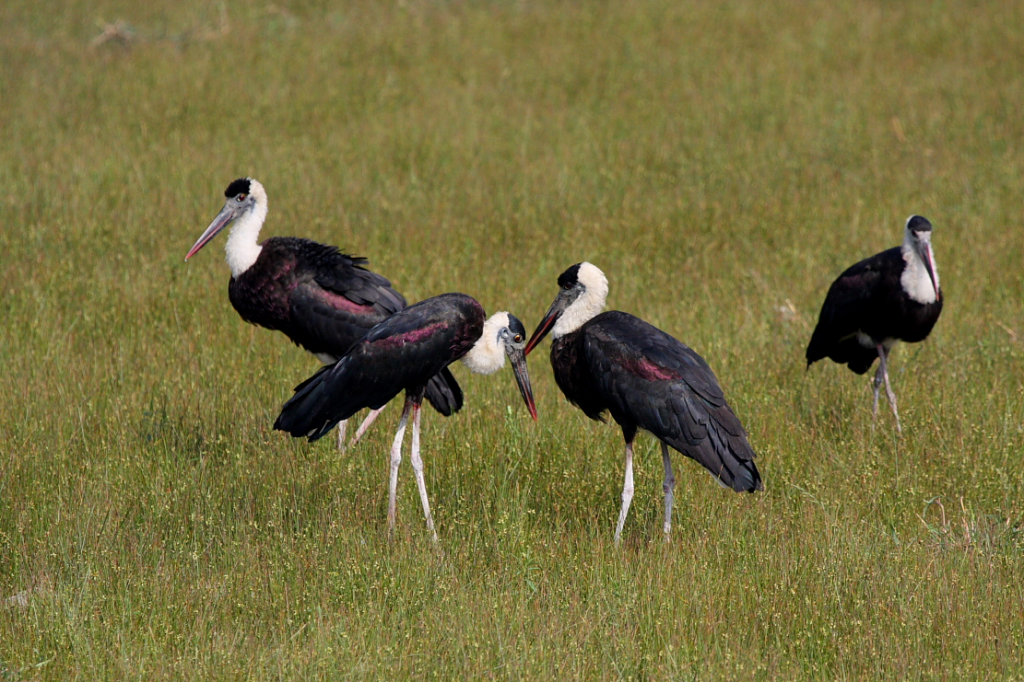
9. Time for Version 2.0: IUCN Red List Outdated and Unreliable, Claim Scientists in New Paper
Scientists and conservationists expressed concerns that the International Union for Conservation of Nature (IUCN) Red List of Threatened Species is outdated and unreliable. The Red List — an extinction risk assessment tool — serves as the most extensive and credible listing of species’ extinction risk and acts as a significant resource for species conservation. Even though the Red List has been “instrumental” in improving species conservation status, 25 scientists have expressed concerns about the Red List affecting conservation efforts, especially in the Global South, in a paper.
The paper is the first time that scientists, researchers and conservationists across diverse taxa have critically reviewed the flaws in the IUCN Species Survival Commission (SSC) system of assigning species status. While the Red List has about 42,100 species threatened, the IPBES, on the other hand, states that more than a million species are facing potential extinction threats.

10. UAE Planned to Use COP28 Summit for Oil Deals, Documents Show
The United Arab Emirates planned to use meetings about the COP28 climate summit it is hosting to pitch oil and gas deals to foreign governments, according to briefing documents obtained by the non-profit Centre for Climate Reporting alongside the BBC. Sultan al-Jaber, president-designate of this year’s UN climate summit, has called for a “phaseout” of fossil fuels globally.
But his position as head of COP28 while also leading the UAE state oil company Adnoc has attracted criticism from politicians in the US and Europe because of the perceived conflict of interest. Documents posted online on Monday appear to show plans for Jaber to discuss fossil fuel deals with 15 countries including China, Brazil, Germany and Egypt. The documents have not been verified by the Financial Times. A spokesperson for COP said the documents were “inaccurate”, “unverified” and had not been used by COP28 in meetings
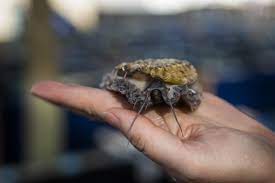
11. Curious South African Sea Snail Is a Prized Dish in Asia. That Has Meant a Trail of Destruction
Nearly every house in Hawston has a boat in its yard, sometimes two. It takes a moment to realize many are out of action, grass sprouting through holes in hulls that haven’t touched water for years.
They are relics of another time, when people fished for their livelihood and the ocean provided more than enough. Those languishing boats and other economic problems in Hawston are the result of changes in the market to South African abalone, a curious fist-sized sea snail that is a highly prized morsel in East Asia and the unwitting instigator of 30 years of trouble for fishing communities along Africa’s southern coast.
Abalone here was abundant and especially tasty, yet the demand largely put the village and its traditional fishers out of business or made them criminals overnight. Click on the link to get the rest of the story
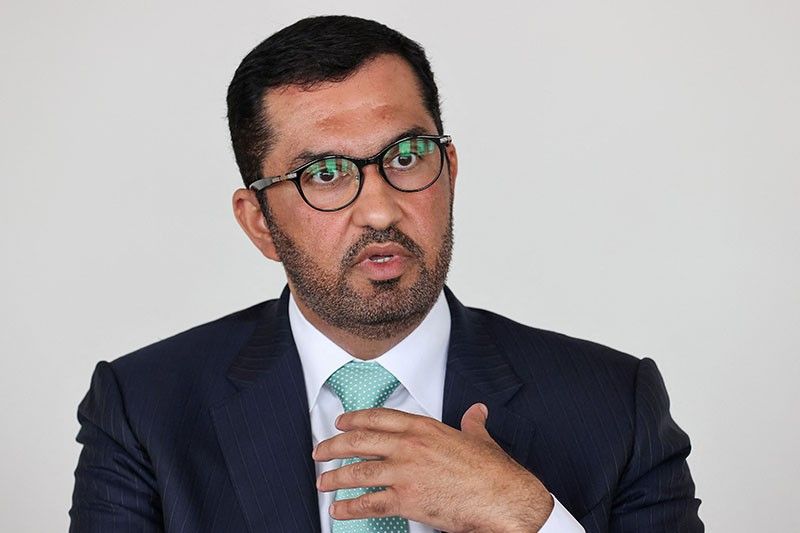
12. Every Industry Should Be ‘Held Accountable’ on Climate — COP28 President
The president of a pivotal UN climate summit defended the large presence of industry representatives at the negotiations, saying private sector engagement was essential to curb global heating. “Everyone needs to be part of this process and everyone needs to be held responsible and everyone needs to be held accountable,” COP28 president Sultan Al Jaber, of the oil-rich United Arab Emirates.
“That includes all industries and in particular heavy emitting industries like aviation, transportation, aluminum, cement, steel, as well as the oil and gas industry,”. National negotiators at COP28 will grapple with a host of flashpoint issues, including the future of fossil fuels—oil, gas and coal—and financial aid from rich polluters for the poorer nations most vulnerable to accelerating climate disruption. The central focus will be a damning stock-taking of the world’s limited progress towards curbing the pollutant greenhouse gas emissions fuelling the climate crisis.
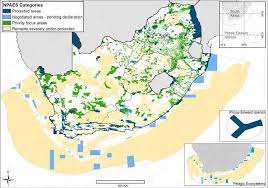
13. Conservation of South Africa’s Protected Areas Is Tenuous as Long as the Law Is Weak
This is an OpEd article written by Kate Handley is an environmental attorney and co-founder of the Biodiversity Law Centre, a non-profit organisation that seeks to use the law to reverse the catastrophic decline of biological diversity in southern Africa. “South Africa’s limited protected-area estate is increasingly coming under threat from mining.
This is facilitated by an enabling regulatory environment that permits mining and related activities within certain protected areas. South Africa is one of only 17 megadiverse countries, a group of countries that comprise only 10% of Earth’s surface, yet host 70% of its fauna and flora. Yet we aren’t faring all that well when it comes to conserving South Africa’s unique and threatened biodiversity.” Click the link to read or listen to the article.
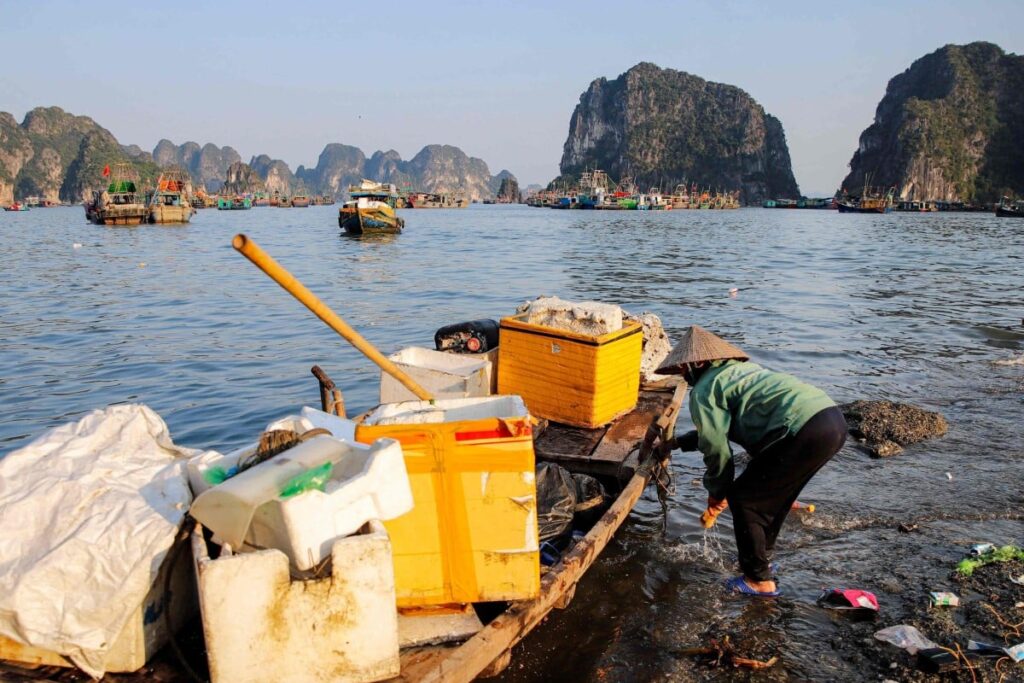
14. Why Vietnam Faces an Uphill Battle in Its War Against Plastic Waste
This is an Opinion article written by Nguyen Khac Gianga. A visiting Fellow at the Vietnam Studies Programme of the ISEAS – Yusof Ishak Institute. Vietnam is grappling with a critical plastic waste crisis. Each year, the country generates 1.8 million tonnes of plastic waste, about one-third of which ends up in the ocean. This constitutes 6 percent of global marine plastic pollution and makes it the world’s fourth-largest emitter.
Not only does this exacerbate Vietnam’s environmental challenges, but it also casts a shadow over its international reputation as the nation has pledged robust commitments to sustainable development and the green transition. The Communist Party of Vietnam has sought to deal with plastic waste as a “prioritised mission”, as specified in its highest-level policy documents.
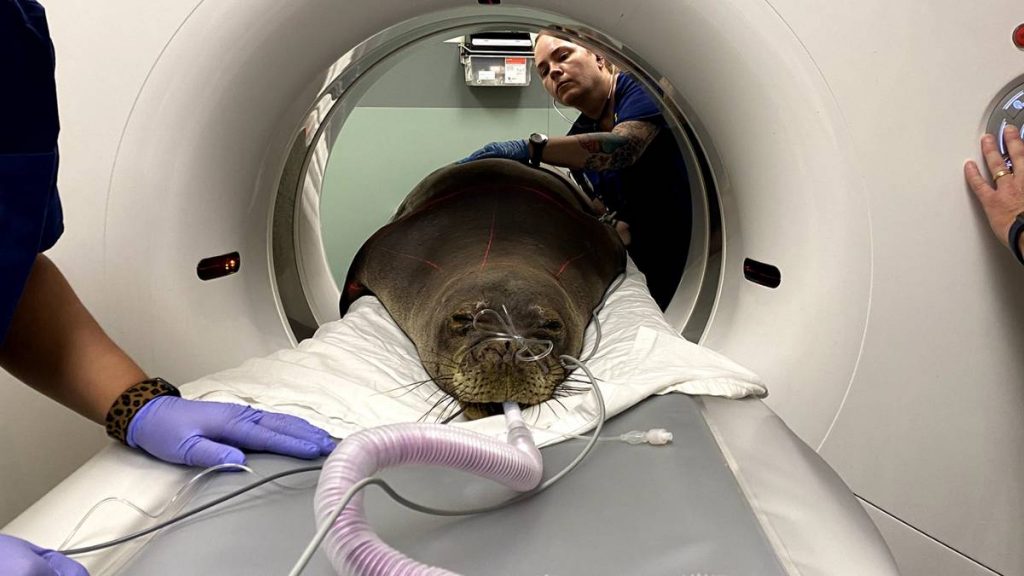
15. Kaua‘i-Born Hawaiian Monk Seal Returned to Garden Isle Waters After 5 Months in Kona Mammal Hospital
A Hawaiian monk seal was returned to its home in Kaua‘i waters after five months of treatment at the Kona mammal hospital for kidney stones, possible pneumonia and a fractured canine tooth that had become infected. The 7-year-old female seal, known as RH38, was initially seen by volunteers and community members in waters around the Garden Isle acting abnormally lethargic. . The National Oceanic Atmospheric Administration and Hawaiʻi Department of Land and Natural Resources were contacted.
The center’s team discovered RH38 was suffering from kidney stones and possibly pneumonia. A CT scan in August by experts at Kona Community Hospital revealed a large fractured canine tooth that became infected. The center was able to successfully remove RH38’s fractured tooth and treat the infection. She steadily improved to the point she was medically cleared for release. Click the link to read or listen to this story.
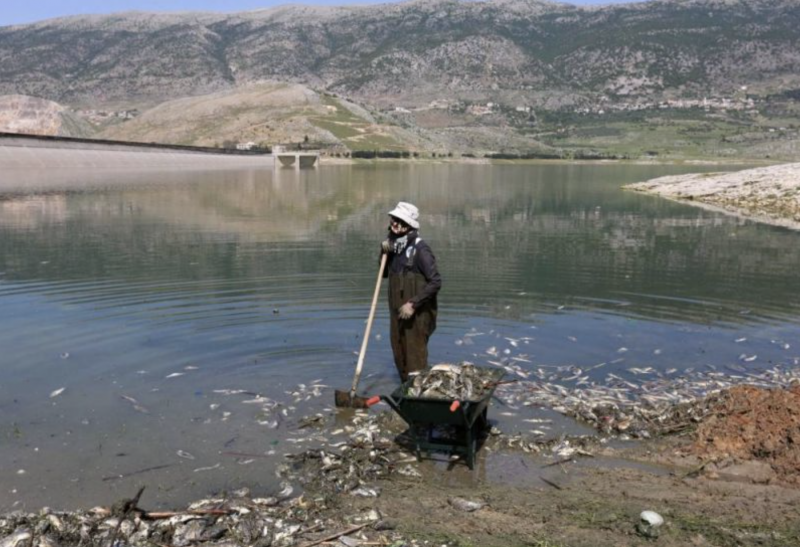
16. Blast Fishing in Lebanon Means More Sharks, Sea Lions, and Dead Whales in Israel?
Blast fishing or dynamite fishing is believed to be the cause of more shark sightings off the coast of Lebanon. In this exclusive report on dynamite fishing, we uncovered the extent of the problem in Tripoli –– how fishers are using illegal, handmade dynamite to blast fish out of nature reserves. The Mediterranean Sea is overfished. And blast fishing is having an impact on other sea life, including sharks and possibly whales and sea lions.
On social media people in Lebanon are worried about getting attacked by sharks, with resorts this past summer warning bathers about the danger at sea. Blast fishing or dynamite fishing is when fishermen drop handmade explosives into the water making it easier to kill tonnes of fish using one blast. The blast damages the fish gills and they float to the surface making for an easy but deadly haul.
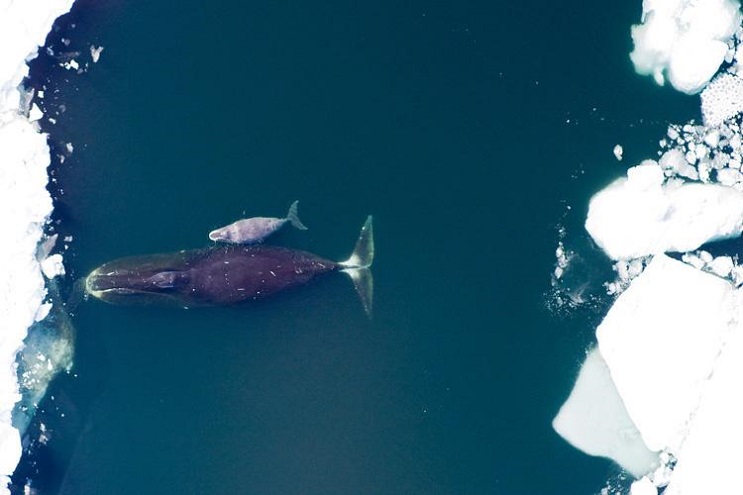
17. Critically Endangered Barents Sea Bowhead Whales in a Changing Arctic Environment
Bowhead whales (Balaena mysticetus) are endemic to the arctic and subarctic regions of the Atlantic Ocean, and the Bering, Beaufort, Chukchi, and Okhotsk Seas.
They live in close association with the sea-ice edge (see map). Intense whaling activity over several centuries dramatically reduced the populations of this once abundant species. Although there is currently no reliable estimate of population size, the Svalbard-Barents Sea sub population (in Norwegian and Russian waters) may only number in the tens; a stark figure considering back-calculated records suggest a preexploitation population of between 25,000 and 100,000 individuals.
Although the Svalbard stock has been protected from hunting since 1931, the International Union for Conservation of Nature (IUCN) lists this subpopulation of bowhead whales as Critically Endangered. Recovery of this population is unlikely without improved understanding of their distribution and increased conservation measures.
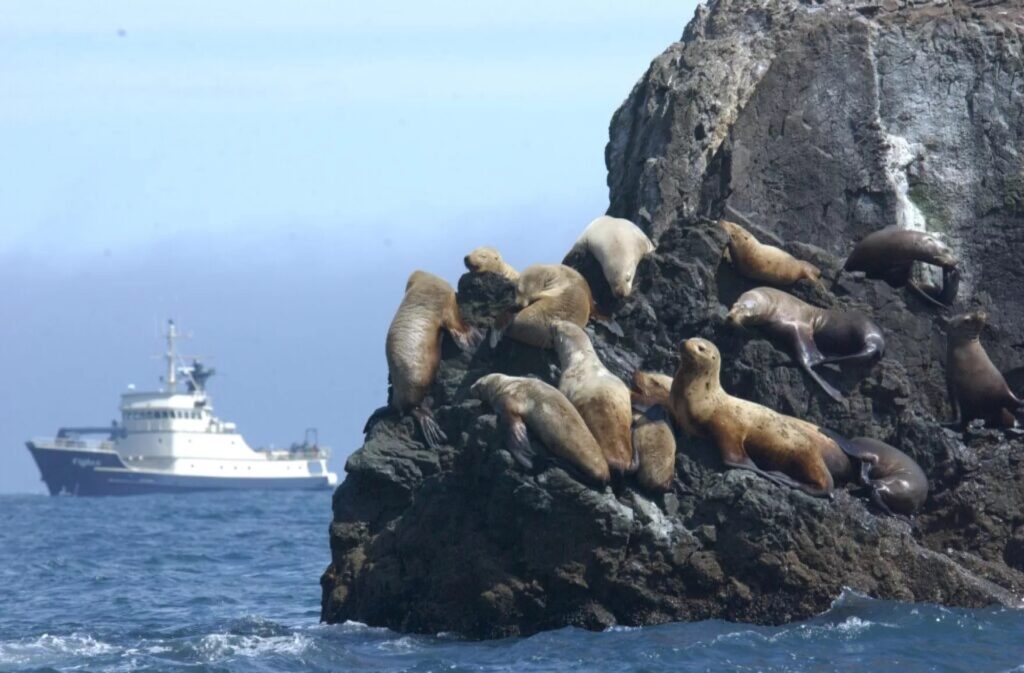
18. Steller Sea Lions Top List of Alaska Marine Mammals Killed by Human Activities
Encounters with humans from 2017 to 2021 killed hundreds of Steller sea lions and other marine mammals that swim in Alaska waters, along with dozens of Alaska whales, according to a new federal report. Of 819 human-mammal interactions reported in the period, 710 were found to have caused death, serious injury or some other result that removed the animals from the population, said the report, released by the National Oceanic and Atmospheric Administration’s Fisheries service.
The other 109 interactions were found to have resulted in injuries that were not serious, the report said. The totals represented a slight decrease from those in the previous report, which covered the five years from 2016 to 2020. During that five-year period, 867 NOAA-managed Alaska marine mammals were documented as killed or seriously injured from encounters with people.
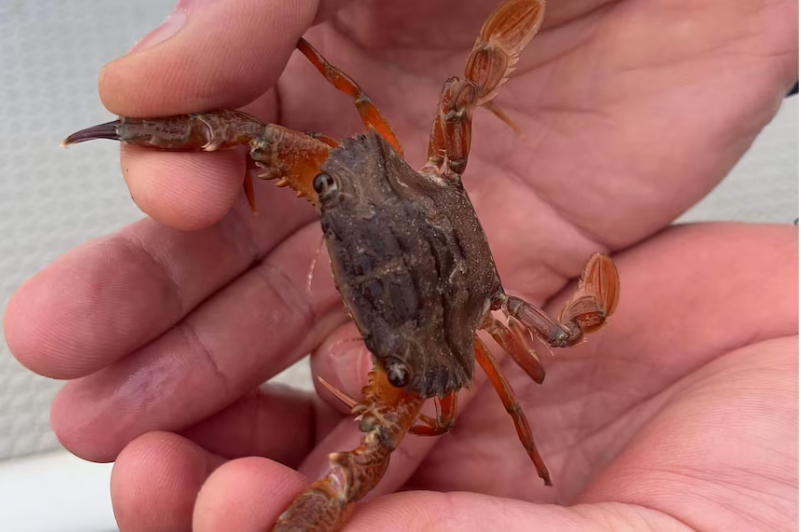
19. Crab Migration off WA’s Shark Bay Sparks Call for More Investment in Marine Research
Conservationists have described the moment they encountered a mass gathering of crabs off the Western Australia (WA ) coast, which they believe could represent a new species. Key points: 1) Conservationists find tens of thousands of crabs floating in the Indian Ocean off Shark Bay in WA 2) This sort of migratory behaviour has never been seen or recorded before 3) Researchers believe the crabs may be an undiscovered subspecies.
Researchers came across the spectacular “carpet” of crabs during a boat trip from Denham to Dirk Hartog Island, around 800 kilometres north of Perth. “It wasn’t hundreds, it wasn’t thousands, it was literally tens of thousands of them at the surface,” Leon Deschamps said. “We actually slowed the boat down because we felt like we were making crab sushi.

20. Bohol Island, Philippines: 151 Juvenile Giant Clams Moved to New Home in Bingag Marine Sanctuary
One hundred and fifty-one giant clams were taken from their temporary holding area in Anda town and moved to their new home in the Bingag Marine Sanctuary in Dauis town in Bohol province. Bohol Provincial Environment Management Office (BPEMO) said that the giant clams were taken from the Bohol Giant Clam Hatchery in Sinandigan, Ubay and temporarily placed in a “holding area” that is located near a private beach resort in Candabong in Anda town following the damage caused by Super Typhoon Odette that hit the province in December 2021.
In an earlier report, BPEMO said that caring for giant clams was part of their Giant Clams Restocking Project, one of the priority programs of the Bohol Provincial government, to ensure the protection and conservation of its marine resources, thus enhancing the province’s marine biodiversity, and providing an alternative source of income to the fisherfolks.

21. New Documentary ‘Wasted’ Explores Asia’s Mounting Waste Crisis — and How to Tackle It
More than a week after a third round of negotiations for a global treaty to stop plastic pollution came to a disappointing close, a new documentary launches that explores the truth behind the waste industry. Negotiations for a binding global plastic agreement were stalled by lobbying from petrochemical and plastics industry-leaning governments, who are pushing for the treaty to focus solely on waste management rather than plastic production.
The new film, titled “Wasted”, explores the role of “polluter pays” laws that hold corporations to account for the 280 million tonnes of short-lived plastic products that enter the environment every year. The film investigates the waste landscape in four key Asian countries for waste – Singapore, South Korea, Vietnam, and India. For the visual humans among us, there is a great 2:23 video to kick off this article!

22. Still a Lot of Work’: Climate Activist Melati Wijsen on What Hong Kong Can Learn From Her Fight to Ban Plastic in Bali
At 12, Melati Wijsen had one dream: banning plastic bags from her home island of Bali in Indonesia. Five years later, the teen made it happen. It began in 2013: disheartened by the plastic strewn over the island’s beaches and fields, Wijsen and her then-10-year-old sister founded Bye Bye Plastic Bags. They initiated petitions, marches, beach clean-ups, and talks with world leaders to campaign against plastic pollution.
Named one of Time magazine’s most influential teens in 2018, Wijsen has spoken at the United Nations and the World Economic Forum, pressuring governments and companies to take action on climate change. After graduating from secondary school in 2019, Wijsen embarked on a journey to meet other young change-makers for a documentary called Bigger Than Us, which premiered at the Cannes Film Festival in 2021. Click the link to read or listen to this story
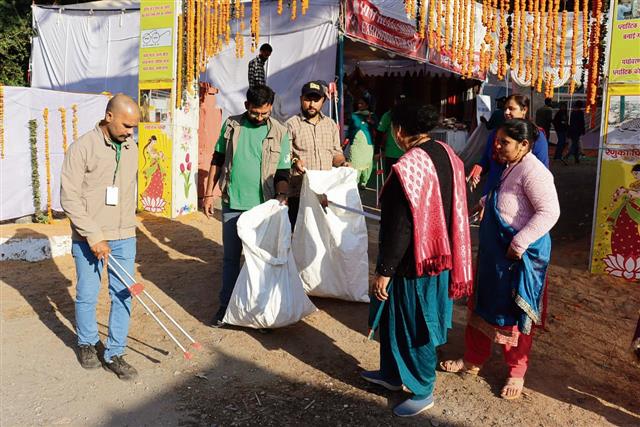
23. Ban on Single-Use Plastic at Six-Day Renuka Ji Fair
The ban on single-use plastic and non-biodegradable substances during the six-day Renuka Ji fair has helped in maintaining cleanliness and checking littering to a good extent. Special focus has been laid on maintaining cleanliness during the fair. As many as 100 temporary toilets have been set up to facilitate devotees and check pollution. An adequate number of sanitary workers has been deputed to ensure cleanliness.
Sumit Khimta, Deputy Commissioner, Sirmaur, said, “Everyone should maintain cleanliness at the Renuka Ji fair. The district administration is trying to ensure a green and polythene-free Renuka Ji fair this year and all devotees have been urged not to use polythene and non-biodegradable substances, arrangements have been made for the safe disposal of solid waste, including plastic waste. Shopkeepers operating in the vicinity of the fair site have been provided carry bags to dispose of solid waste.
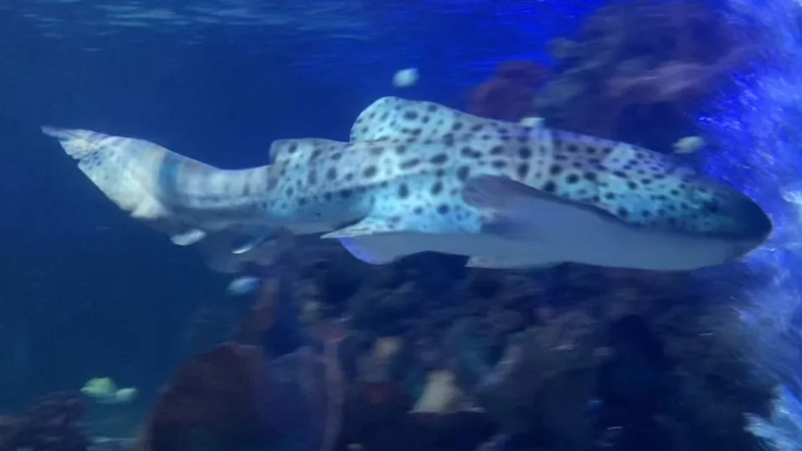
24. Zebra Shark Breeding Hope at Weymouth Sealife Centre
The arrival of two new zebra sharks at a Dorset aquarium could help in the conservation of the species, marine experts have said. They arrived at Weymouth Sealife Centre from aquariums in France. They are developing and growing in the tropical lagoon before moving to the ocean display in the new year.
Zebra sharks are native to the Western Pacific and Indian oceans and despite the title, zebra sharks only have stripes when they are young. The stripes turn into leopard-like spots as they mature. The species is on the International Union for the Conservation of Nature (IUCN) red list as endangered as it has faced pressures from over-fishing and is hunted to supply “the trade in shark fin and their eggs are a delicacy.
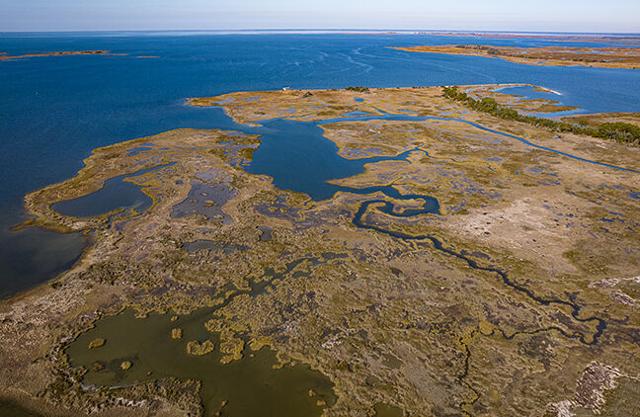
25. More Coastal Land Along the Bay Could Get Federal ‘Protection’
Broad stretches of marshes along the Chesapeake Bay’s shores could soon gain federal protection under a Reagan-era conservation program popular among conservatives and progressives alike. Bills in the House and Senate would add 277,000 acres to the Coastal Barrier Resources System, a nationwide network of low-lying beaches, barrier islands, wetlands, and nearby uplands considered highly vulnerable to punishing tides and waves.
A little more than half of the new acreage would be drawn from tracts in three Bay-region states: Delaware, Maryland, and Virginia. Indeed, undeveloped lands tend to stay that way after receiving the Coastal Barrier designation. Such properties were developed at an 85% lower density compared with similar tracts not included in the program, according to an analysis by Resources for the Future, a nonpartisan think tank devoted to environmental issues.
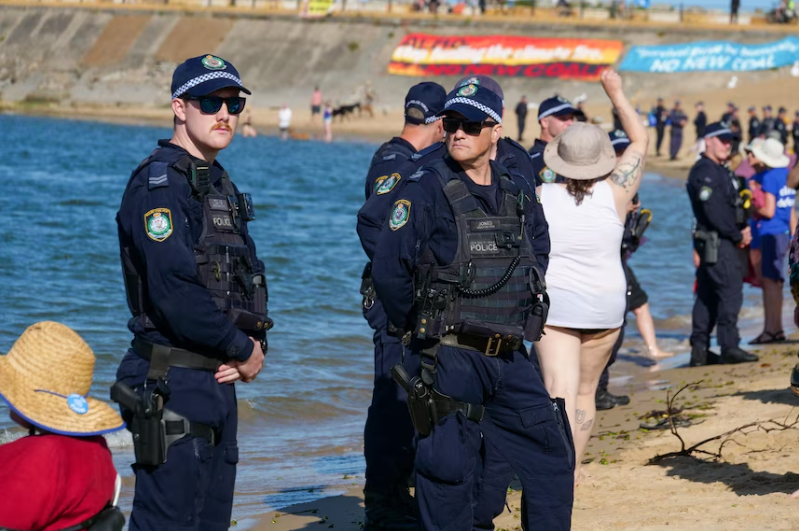
26. More Than 100 Climate Change Protesters Charged After Blockade at Port of Newcastle
Key points: 1) Two of the protesters appeared at Newcastle Local Court today 2) More than 100 people were charged in relation to the 30-hour blockade 3) The New South Wales premier says he does not support the protest. The two-day demonstration involved scores of kayaks and floats aimed at bringing attention to global warming. Federal Hunter Member of Parliament, Dan Repacholi described the protest as “ridiculous” and “chaotic”.
“Honestly, everyone has a right to protest but I think it’s a bit chaotic what they’re doing down there, at least half of the world is powered by our coal so to stage a protest as they’ve done, I think it’s a bit ridiculous, personally, but everybody has the right to protest and we don’t want to take that away from anyone. Click the link to read or listen (4:19) to this story.

27. United Church of Canada Giving Populations Most Affected by Climate Change a Voice at COP28
As a young adult who’s Métis and Cree, student minister Shane Goldie speaks for populations his church says are most affected by climate change. Goldie, who serves two southern Alberta churches, was selected by the United Church of Canada to be part of its delegation virtually attending COP28, the United Nations climate change conference taking place in Dubai, United Arab Emirates, from Nov. 30-Dec. 12.
Goldie notes that in many Indigenous cultures, the earth is viewed as sacred and adds that the spiritual relationship to the earth fosters a sense of responsibility and stewardship. But humanity has become disconnected from the earth and each other, and that has contributed to the current climate crisis, said Goldie.
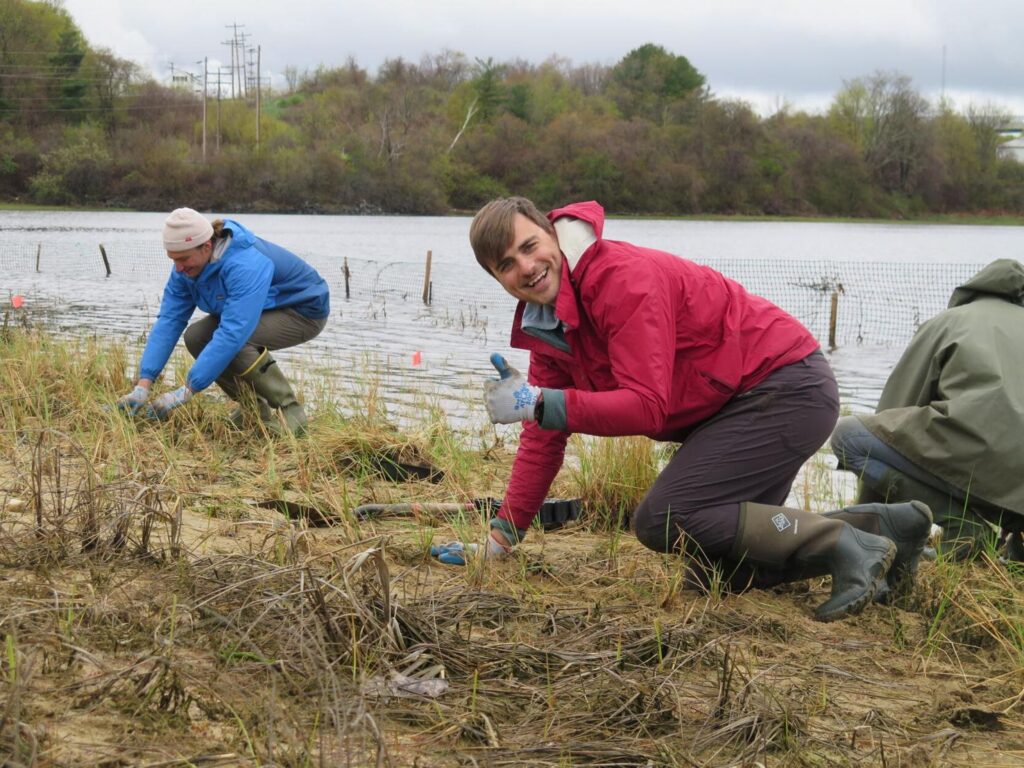
28. Holding Back the Tides of Climate Change With ‘Living Shorelines’
As New Hampshire experiences more extreme weather events, rising tides and coastal flooding, scientists here are finding ways to adapt to those changes. Their efforts don’t get a lot of attention, but these small steps could have big impacts as climate change increasingly threatens the state’s ecology and economy. Take the “living shoreline” projects researchers have created in three Seacoast locations, most recently at Cutts Cove off Market Street in Portsmouth.
The goal of the joint undertaking by the state Department of Environmental Services and the University of New Hampshire’s Jackson Estuarine Lab in Durham is to restore natural shorelines and harden them against future storms and tidal surges. “When we’re thinking about engineering practices along the coast, probably our best teacher is nature itself,” said Aidan Barry, a coastal resilience and habitat specialist with DES’s coastal program.

29. Study Warns Against Overreliance on IUCN Red List in Conservation Policies, Funding
The IUCN Red List of Threatened Species is incomplete, partially outdated, and has several other limitations suggesting it should not play the critical role it does in determining conservation policy-making and funding for governments, NGOs, and philanthropists, a new study has claimed. The study puts forth reasons the IUCN Red List should be “a” tool and not “the” tool for assessing extinction risk.
For example, scientists point out that the IUCN Red List ranks 150,000 species, which is a mere fraction of the 2 million species that have been described globally or the 50 million animal species estimated to live on the planet. Many of the unassessed species are assumed to be in trouble, over a million species are likely threatened, yet funding tends to flow to the most charismatic of the 42,100 species the IUCN has categorised as threatened.
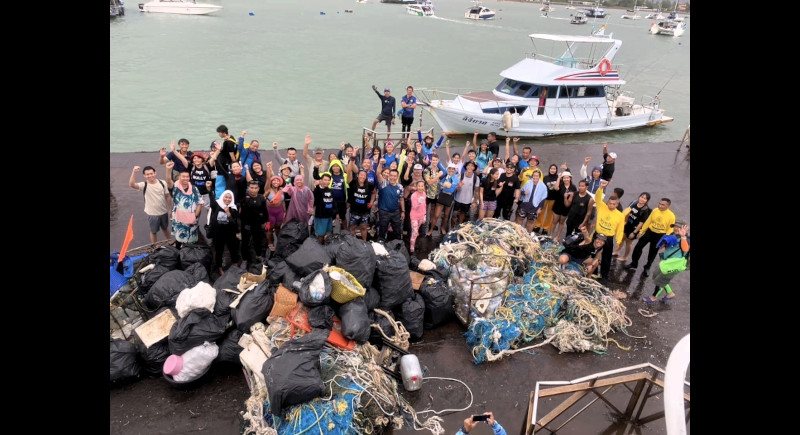
30. Racha Noi Cleanup Nets 4.5 Tonnes of Trash
A beach and underwater cleanup at Koh Racha Noi, south of Phuket, Thailand, collected more than four tonnes of trash at the idyllic Rang Kai Bay, a popular dive tourist destination. The cleanup was led by well-known marine conservationist Psi “Sirinat” Scott, who heads the marine conservation group “Sea You Strong.” The Department of Marine and Coastal Resources (DMCR) oversaw the cleanup.
Volunteers from the Monsoon Garbage Group also helped. In total, 120 people joined the cleanup, collecting trash and debris weighing 4,450 kilogrammes. Much of the debris included discarded commercial fishing ropes. In its report of the cleanup, the DMCR said “It also stimulates tourism and raises awareness of using marine and coastal resources for maximum value and sustainability. The project implementation went smoothly and all objectives were achieved.”
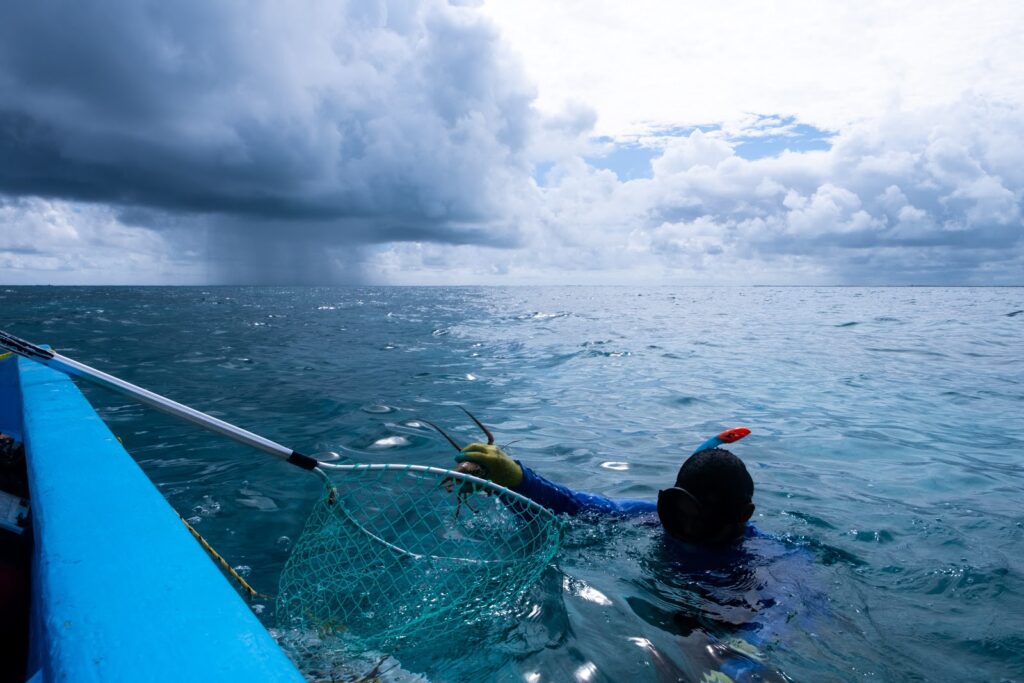
31. Net Disaster: Yucatan’s Marine Mammals in Peril Due to Fishing Practices
In Yucatan, human activities, particularly fishing nets, are the leading cause of marine mammal strandings and fatalities. Raúl Díaz Gamboa, coordinator of the Yucatán Marine Mammal Research and Conservation Program (Picmmy), identifies various causes for strandings like illness, old age, and injuries. However, human impact, including pollution, vessel collisions, and fishing nets, poses the greatest threat.
Fishing nets are responsible for 35% of marine mammal deaths in Yucatan. Diaz Gamboa advocates for alternative fishing methods to reduce this impact. Since 2013, Picmmy has documented 111 stranding cases involving 143 marine mammals. The port of Celestún records the highest number of strandings, with 15 incidents, including five in the current year.
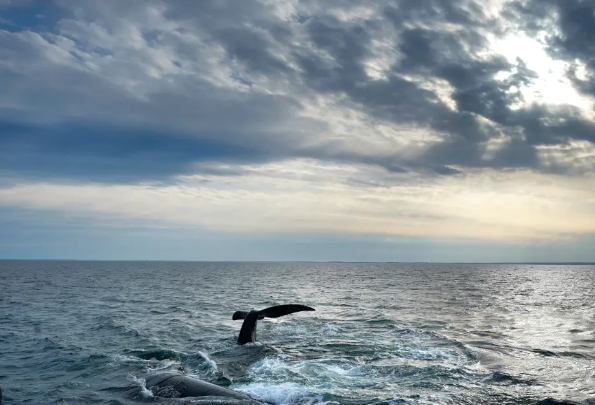
32. Ocean’s Shadow: China’s Fishing Fleet and the Human Rights Crisis
China’s distant-water fishing fleet, the largest in the world, is mired in human rights violations and poor working conditions. This fleet, roughly twice the size of its nearest rival, comprises about 6,500 vessels, compared to less than 1,000 each for Japan and the United States.
The fleet’s practices raise serious concerns, including the exploitation of forced labor from Indonesian victims and Uyghurs, a repressed minority in China. These issues, along with the lack of stringent regulation, exacerbate the human rights crisis in the seafood industry. Notably, China supplies nearly 10% of U.S. seafood imports, highlighting the global impact of its fishing operations.




